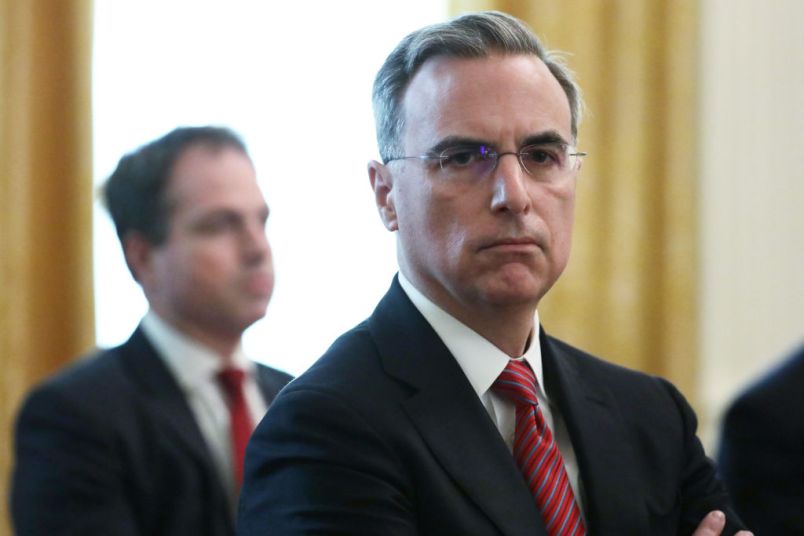The House Jan. 6 Committee and former White House counsel Pat Cipollone, who had a front-row seat to Donald Trump’s 2020 election steal efforts, are hashing out terms for the attorney’s potential public testimony, according to ABC News.
Cipollone, who already appeared privately in front of the committee in April, reportedly told the committee that he would only testify publicly on ex-Justice Department official Jeffrey Clark’s role in helping Trump try to weaponize the DOJ in his bid to cling to power after the 2020 election.
ABC News reported that the Jan. 6 panel wants Cipollone to testify publicly alongside ex-acting Attorney General Jeffrey Rosen, ex-acting Deputy Attorney General Richard Donoghue and Steven Engel, the ex-head of the DOJ’s office of legal counsel.
All four former Trump officials witnessed Clark, who was the acting head of the DOJ’s civil division at the time, scheming to undermine Joe Biden’s victory in the election in different ways. Clark told Rosen and Donoghue in December 2020 that he wanted the DOJ to hold a press conference announcing an investigation into voter fraud. Additionally, Clark pushed them to sign a letter he’d written urging Georgia lawmakers to call a special session to overturn the state’s election results. And Rosen alerted Cipollone and Engel to Clark’s plot to replace him as acting attorney general.
Cipollone was part of the infamous Oval Office meeting on Jan. 3 last year in which he and DOJ leadership warned Trump that they would all resign if he replaced Rosen with Clark.
Their threat ultimately convinced Trump not to go through with the plan.
Cipollone also pushed back against Michael Flynn and Sidney Powell’s jaw-dropping proposal in December 2020 that Trump issue an executive order directing the Defense Department to seize voting machines across the country.
Additionally, Cipollone was in contact with Trump on the day of the Capitol insurrection at least once: White House call logs show that the then-president called Cipollone hours after the attack, and it’s been reported that they spoke sometime in the seven-hour gap in the White House’s call records on that day.



